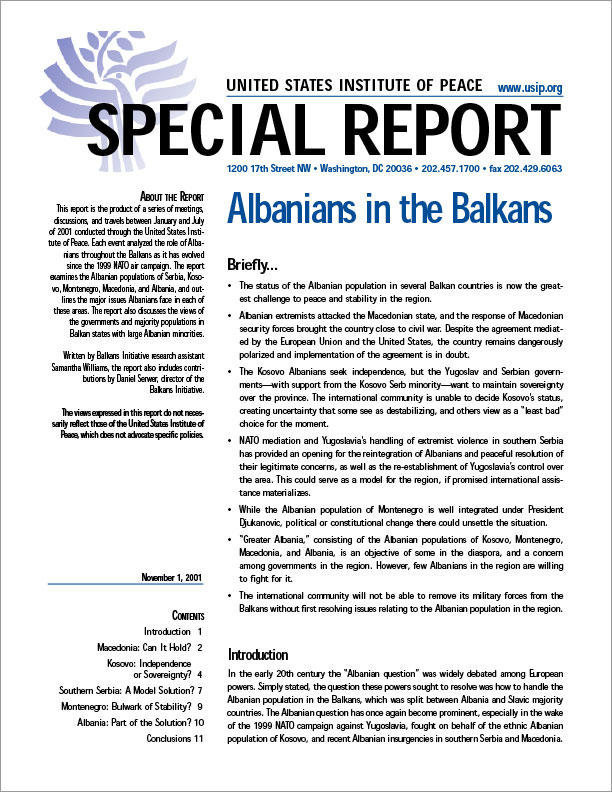Albanians in the Balkans

Summary
- The status of the Albanian population in several Balkan countries is now the greatest challenge to peace and stability in the region.
- Albanian extremists attacked the Macedonian state, and the response of Macedonian security forces brought the country close to civil war. Despite the agreement mediated by the European Union and the United States, the country remains dangerously polarized and implementation of the agreement is in doubt.
- The Kosovo Albanians seek independence, but the Yugoslav and Serbian governments--with support from the Kosovo Serb minority--want to maintain sovereignty over the province. The international community is unable to decide Kosovo's status, creating uncertainty that some see as destabilizing, and others view as a "least bad" choice for the moment.
- NATO mediation and Yugoslavia's handling of extremist violence in southern Serbia has provided an opening for the reintegration of Albanians and peaceful resolution of their legitimate concerns, as well as the re-establishment of Yugoslavia's control over the area. This could serve as a model for the region, if promised international assistance materializes.
- While the Albanian population of Montenegro is well integrated under President Djukanovic, political or constitutional change there could unsettle the situation.
- "Greater Albania," consisting of the Albanian populations of Kosovo, Montenegro, Macedonia, and Albania, is an objective of some in the diaspora, and a concern among governments in the region. However, few Albanians in the region are willing to fight for it.
- The international community will not be able to remove its military forces from the Balkans without first resolving issues relating to the Albanian population in the region.
About the Report
This report is the product of a series of meetings, discussions, and travels between January and July of 2001 conducted through the United States Institute of Peace. Each event analyzed the role of Albanians throughout the Balkans as it has evolved since the 1999 NATO air campaign. The report examines the Albanian populations of Serbia, Kosovo, Montenegro, Macedonia, and Albania, and outlines the major issues Albanians face in each of these areas. The report also discusses the views of the governments and majority populations in Balkan states with large Albanian minorities.
Written by Balkans Initiative research assistant Samantha Williams, the report also includes contributions by Daniel Serwer, director of the Balkans Initiative.
The views expressed in this report do not necessarily reflect those of the United States Institute of Peace, which does not advocate specific policies.


